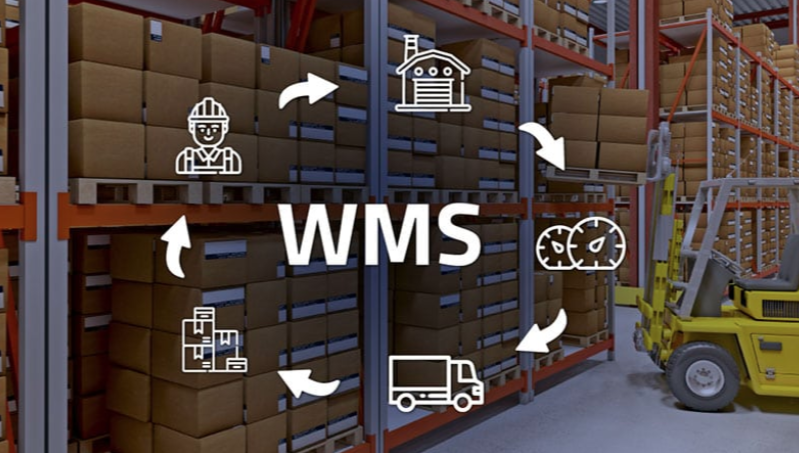In today’s fast-paced business environment, managing inventory and warehouse operations efficiently is critical to maintaining profitability and customer satisfaction. Small businesses, in particular, face the challenge of optimizing their warehouse operations without the complex and expensive tools available to larger enterprises. This is where a best warehouse management system (WMS) comes into play. By choosing the right WMS, small businesses can streamline their warehouse processes, enhance inventory accuracy, and improve overall operational efficiency.
In this article, we’ll walk you through everything you need to know about warehouse management systems and how to select the best one for your business needs.
What is a Warehouse Management System (WMS)?
A Warehouse Management System (WMS) is a software solution that helps businesses manage the day-to-day operations of their warehouse. This system typically includes tools for inventory management, order fulfillment, picking, packing, and shipping, among other functions. A robust WMS helps businesses optimize warehouse space, track inventory in real time, reduce operational costs, and improve the speed and accuracy of order fulfillment.
For small businesses, implementing a WMS can significantly improve efficiency, reduce errors, and allow for scalability as the business grows.
Why Do Small Businesses Need a Warehouse Management System?
Many small businesses still rely on manual processes or spreadsheets to manage their warehouses. However, as your business expands, these methods become increasingly inefficient and prone to human error. A WMS helps to overcome these challenges by automating tasks and improving workflow visibility. Here are a few reasons why small businesses should consider investing in a best warehouse management system:
- Real-Time Inventory Tracking: A WMS allows you to monitor inventory levels in real-time, reducing the risk of stockouts or overstocking.
- Improved Efficiency: With automation of key processes like order picking, packing, and shipping, a WMS reduces the time it takes to complete tasks and helps you manage labor more effectively.
- Reduced Operational Costs: By optimizing warehouse layout, reducing errors, and improving order accuracy, a WMS can help cut costs related to stock handling and customer returns.
- Scalability: As your business grows, a WMS can scale to accommodate increased order volume and complexity.
- Better Customer Experience: Faster order fulfillment and accurate deliveries lead to better customer satisfaction, which can result in repeat business and positive reviews.
Key Features to Look for in a Warehouse Management System for Small Businesses
When evaluating warehouse management systems for small businesses, it's important to look for specific features that will benefit your operations. Here are the key features you should consider:
- Inventory Management: The core function of any WMS is real-time tracking of inventory. Look for a system that allows you to monitor stock levels, track product movements, and manage stock across multiple locations.
- Order Fulfillment and Picking: A good WMS will streamline order fulfillment by providing efficient picking routes and automating the packing and shipping processes. This reduces human error and increases order accuracy.
- Barcode Scanning: Barcode scanning helps reduce manual data entry and speeds up tasks like inventory counting and order picking.
- Integration with Other Systems: Ensure that the WMS integrates seamlessly with other systems you may use, such as your enterprise resource planning (ERP) software, accounting tools, and eCommerce platforms.
- Reporting and Analytics: Detailed reports and analytics on stock levels, order processing times, and other key performance indicators (KPIs) can help you make data-driven decisions to improve warehouse efficiency.
- Mobile Accessibility: Many WMS solutions offer mobile apps that allow warehouse staff to access critical data and complete tasks from anywhere within the facility, improving flexibility and response times.
- User-Friendly Interface: A system that is easy to use can reduce training time for your team and minimize errors associated with complex software.
How to Choose the Best Warehouse Management System for Your Business
When selecting the best warehouse management system for your small business, it’s essential to consider the following factors:
- Business Size and Complexity: The WMS you choose should be able to accommodate your current business size and future growth. Consider the volume of orders, inventory, and the number of users that will need access to the system.
- Budget: Small businesses often have limited budgets, so it’s important to choose a WMS that offers a good balance of features and affordability. Many WMS providers offer tiered pricing based on business size and requirements.
- Ease of Implementation: Some WMS solutions may require extensive setup and training, while others are quicker to implement. Choose a system that can be integrated into your operations smoothly.
- Customer Support: Good customer support is crucial if you encounter issues with your WMS. Look for a provider that offers reliable customer service via phone, email, or chat.
Conclusion
Investing in the best warehouse management system can help small businesses optimize their warehouse operations, reduce costs, and improve customer satisfaction. When selecting a WMS, consider factors like the features you need, your business size and complexity, and your budget. By choosing the right WMS, small businesses can improve efficiency, minimize errors, and scale their operations for future growth. Whether you’re just starting or expanding your business, the right warehouse management software can be a game-changer.









